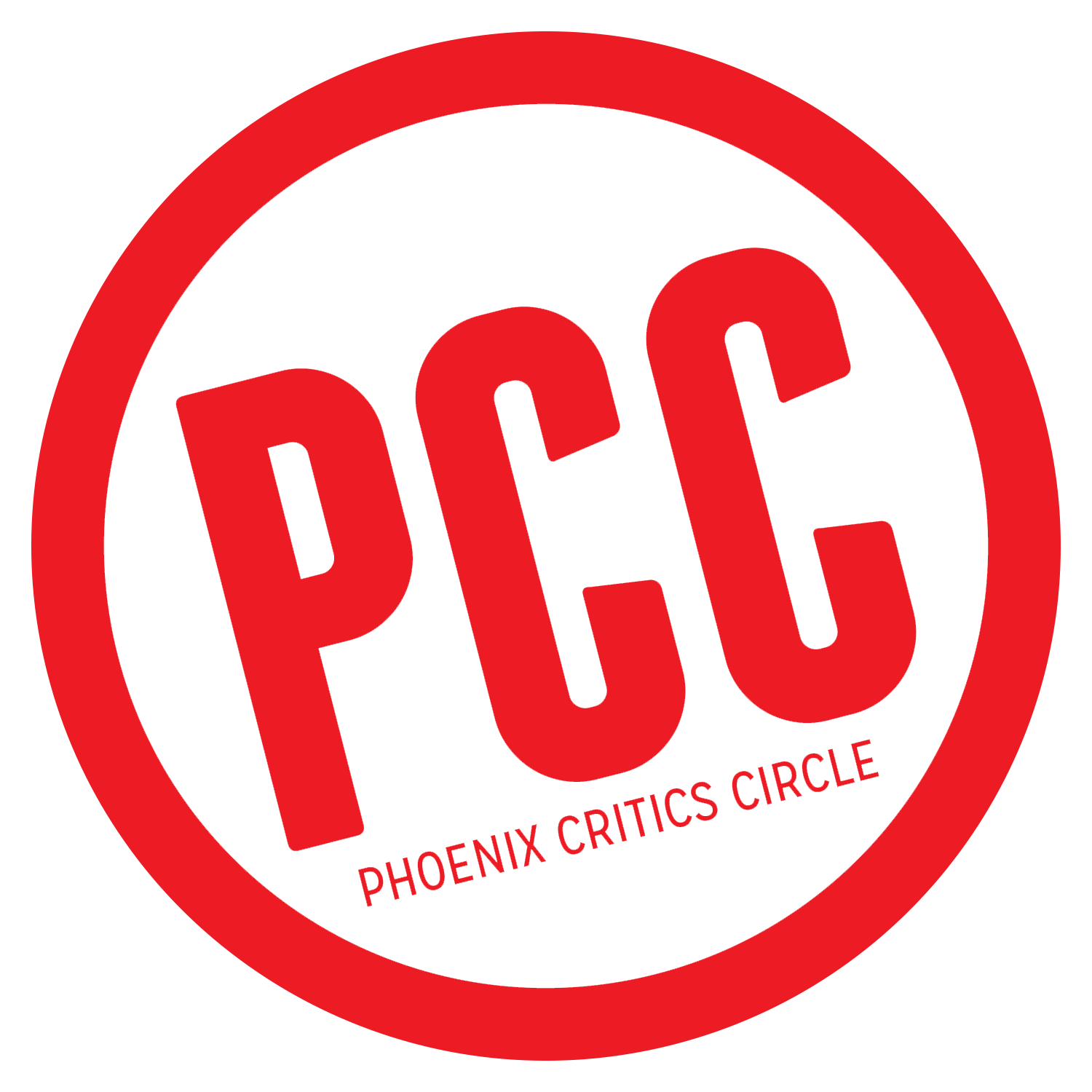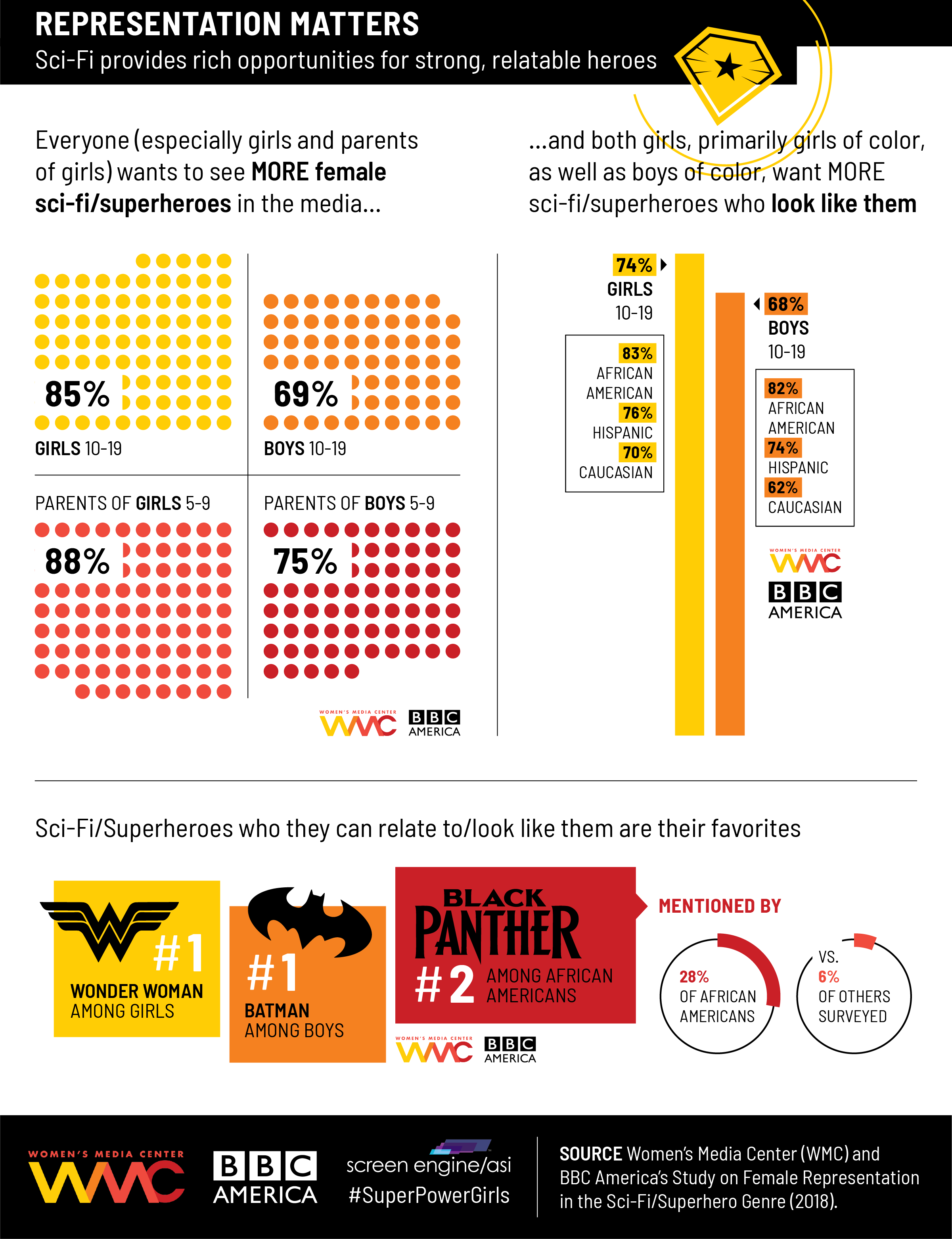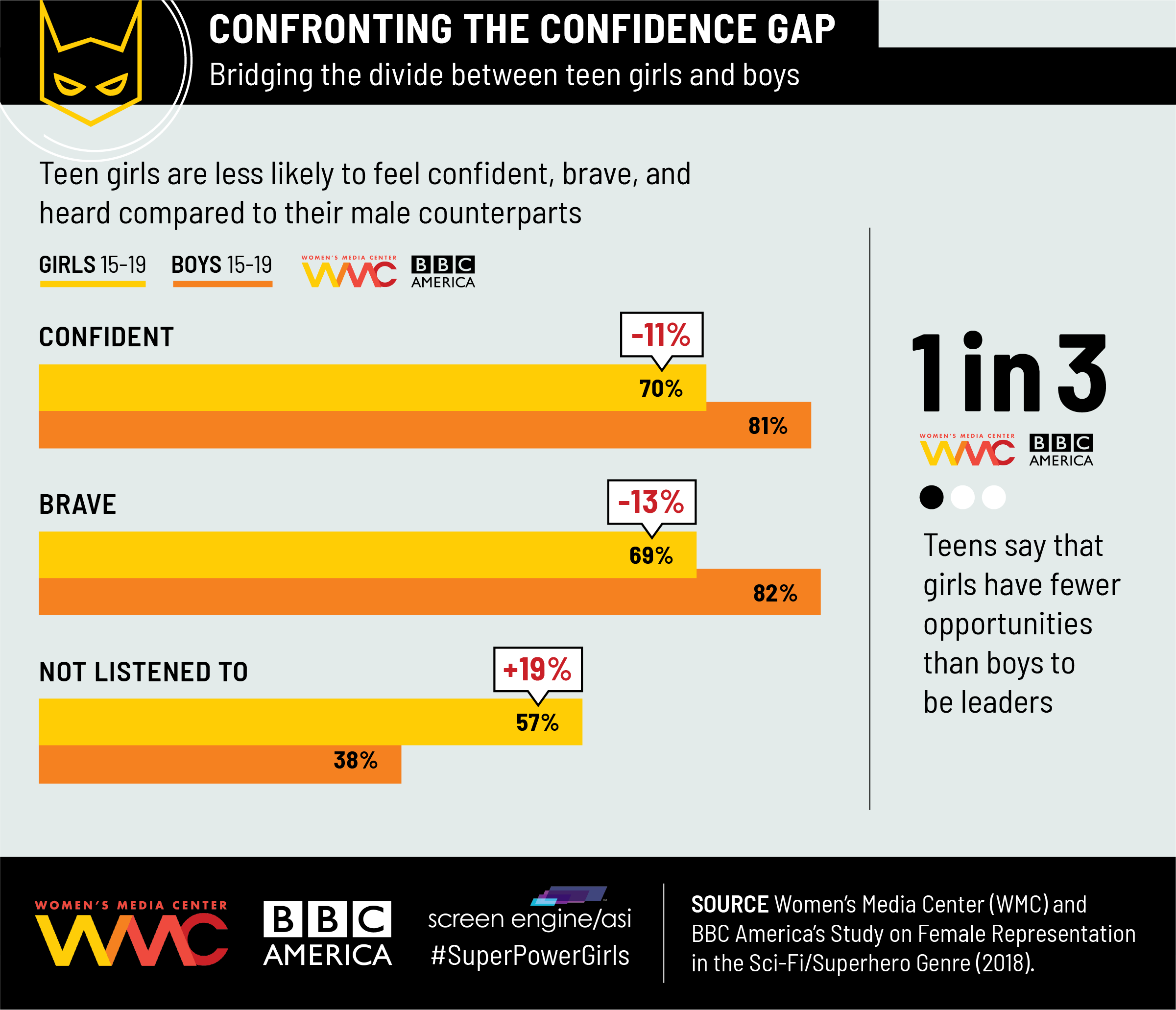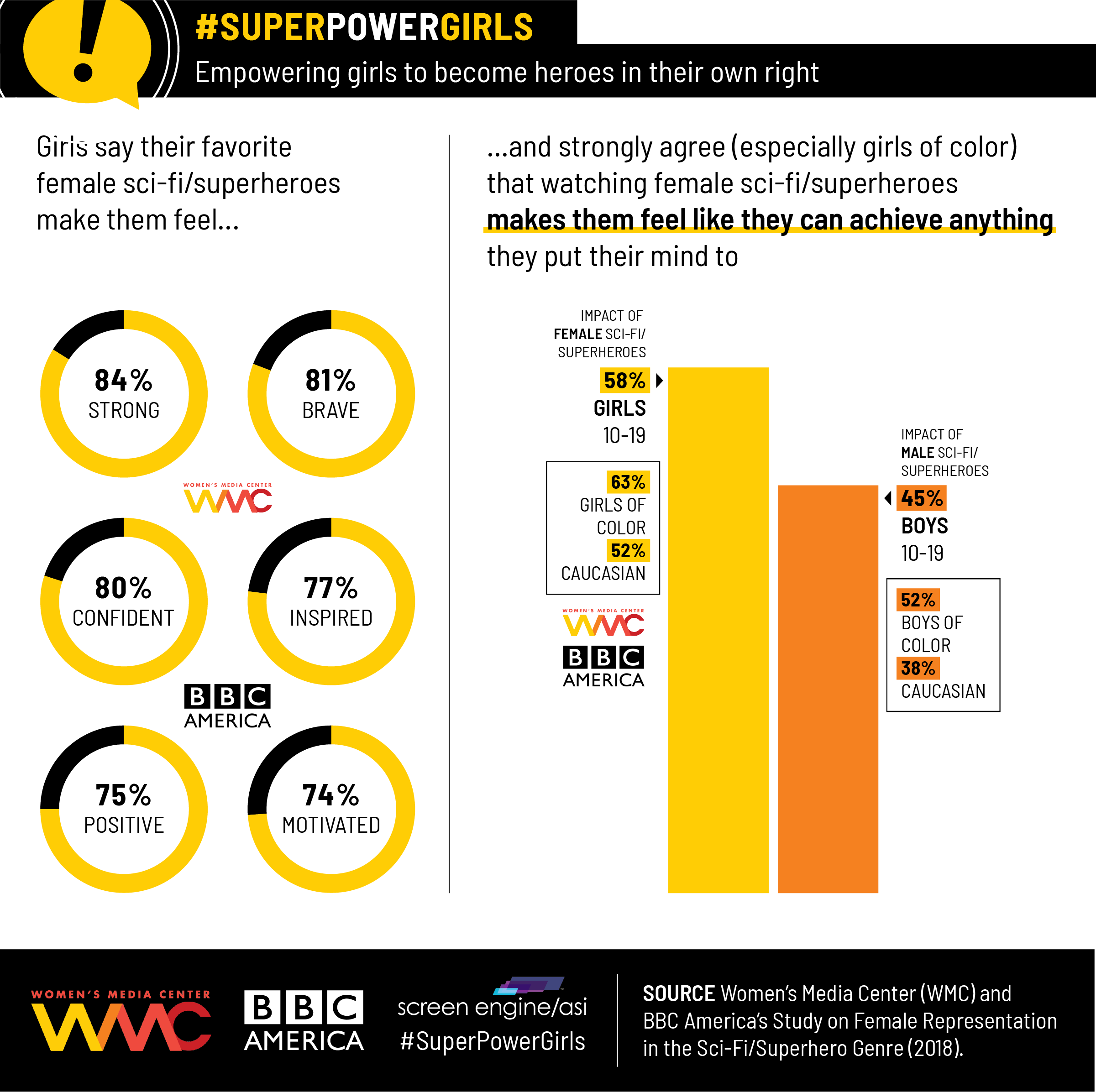By Kaely Monahan
The demand for more female super and sci-fi heroes is on the rise according to a new study by BBC America and the Women’s Media Center. And it doesn’t come as a surprise. The box office success of Wonder Woman ensured that studio executives are at least looking into more female-led sci-fi and female-led stories.
In the first in a series of studies Superpowering Girls: Female Representation in the Sci-Fi/Superhero Genre, the researchers polled some 2,431 girls and boys ages five to 19 years, as well as the parents of kids between five and nine years old.
Both kids and their parents were asked about their favorite role models, favorite superheroes, gender representation in the media, and for the children specifically, what their future aspirations are.
Courtney Thomasma is the Vice President of research for BBC America and one of the leaders on the project. She says the study uncovered two very interesting points when it comes to role models.
“Across the board girls and boys look to role models that are the same gender as themselves. You know you can see it. You identify with your own gender a lot more. That can be really empowering,” she says. “We also found outside of parents and family, superheroes were actually the number one source of inspiration and role models for children.”
Unsurprisingly, when it comes to superhero role models, boys have an extensive list of choices. From Batman to Superman to Spider-Man, there’s nearly a hero for every boy -- although diversity among the superheroes is still lacking. For girls, however, the list is much shorter. According to the study, Wonder Woman is most picked by girls as their favorite superhero, with Supergirl getting mentioned here and there.
“That was pretty telling,” Thomasma says. “There's an important space for that sort of character and I think, especially in the sci-fi superhero genre where it's about imagination and possibility more so than some other genres. There's a real opportunity for representation in the space. And unfortunately a real lack of representation on the female side.”
This lack of representation translates into real-world concerns for young women. The study found that by the time a girl reaches her teens she is significantly less likely than a boy to describe herself as confident. They also don’t describe themselves as brave nearly as often as boys, and perhaps the most distressing of all 57% of teen girls said that they don’t feel like they’re heard. The numbers are even higher for girls of color.
This lack of confidence and feeling of being unheard means that young girls may not feel able to do things or choose career paths that are traditionally male-dominated. Take for example the STEM (Science, Technology, Engineering, Mathematics) field. Only one-third of teen girls say they want to pursue a STEM career.
So how does having more female superheroes and sci-fi heroes help?
“Girls were much more likely to say that female superheroes made them feel like they could be anything that they wanted to. (And) actually, boys who have a lot more male superheroes to choose from we're less likely to cite those empowering effects,” Thomasma says.
She believes that there is not only a hunger to see more women in these roles but that there is a real need to show women in the role of the hero.
It makes good business sense to create more female heroes. The demand is high, and perhaps most surprising, girls and boys across the board both say they want to see more women in these roles. If the appetite is there, then it only serves in the studios' interests to fill the demand with well developed, interesting, powerful female heroes.
Take, for example, the overwhelming outpouring of enthusiasm and support for Jodie Whittaker as The Doctor in Doctor Who. She says they were inundated with fanart, fanfiction, videos of reactions to the news that a woman was playing the pivotal role of the Doctor after 50 years of men.
“One (video) clip, in particular, went viral of a mom and her daughter watching the announcement. And this girl looks to the camera as soon as Jodie Whittaker who plays The Doctor took her hood off and revealed that she was, in fact, a woman. The girl turned to the camera and squeals the ‘New Doctor the girl!’ I think with the most aired video of the day. People like P!nk picked it up and shared it,” Thomasma says.
BBC America and the Center for Women in Media is continuing their research, but it is clear that there is a huge space to fill with female-led hero roles. And with Captain Marvel hitting theaters next year, and whispers of a Harley Quinn solo movie, one can only hope that the space so long dominated by white-male heroes will make room for a diverse cast of fresh-faced heroes for our young women.
Images courtesy of BBC America.
• Kaely Monahan is a radio producer for KJZZ News, an entertainment reporter, and the creator of Whiskey and Popcorn. Follow her @WhiskeyPopcorn and @KaelyMonahan.





